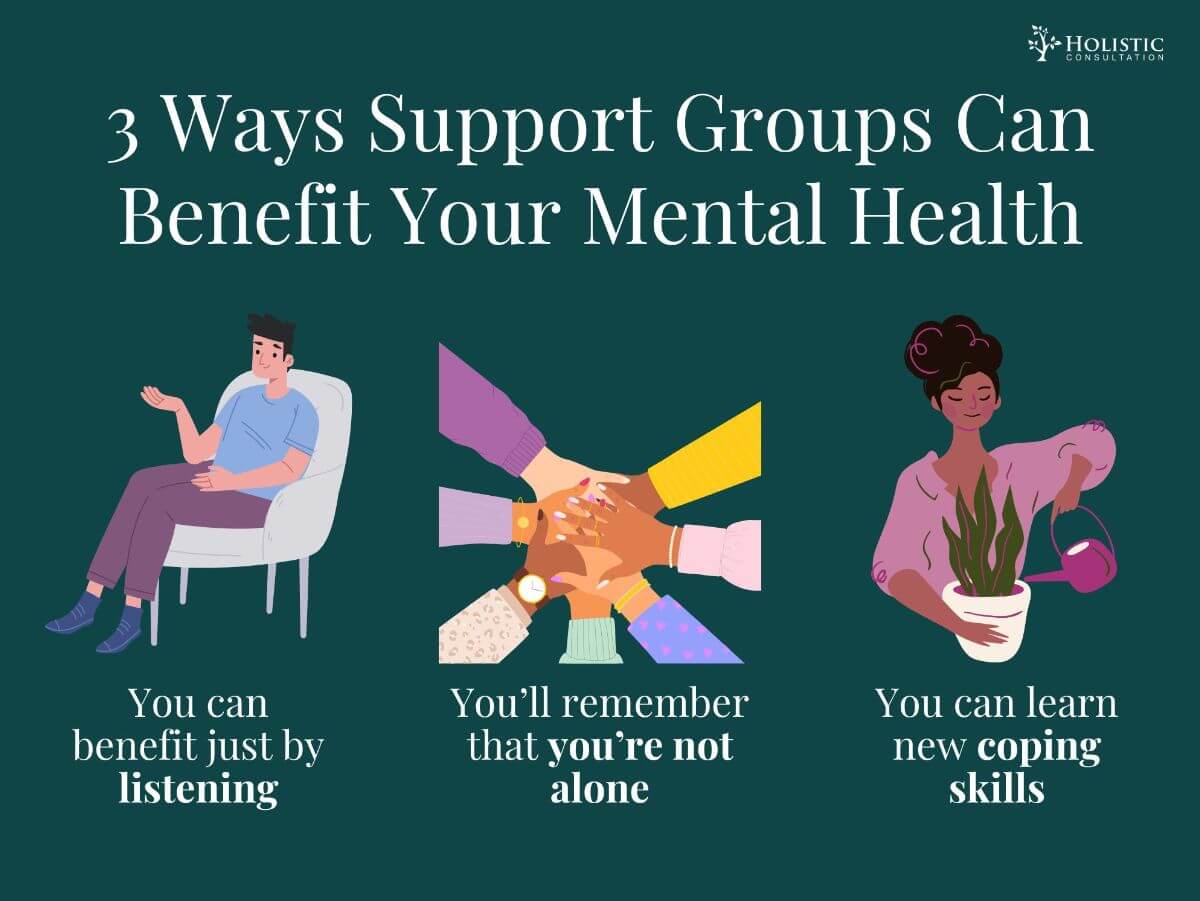The 8-Minute Rule for Mental Health Counseling
Table of ContentsNot known Details About Mental Health Counseling 10 Easy Facts About Mental Health Counseling ExplainedMental Health Counseling - The FactsSome Ideas on Mental Health Counseling You Need To KnowMental Health Counseling - Truths
Through therapy, you can acquire insight right into your own patterns of actions and communication, which can lead to even more fulfilling and pleasing relationships with good friends, family, and enchanting partners. What we think, we show up. If you're eaten with unfavorable emotions and negative thoughts that are disrupting your life, therapy can assist., or there are other negative means you act. Therapy can assist you alter those habits that are having a negative effect on your world and relationships.

Getting therapy to attend to certain facets of your life can help you be a lot more productive in other locations, including work.

A Biased View of Mental Health Counseling
You can see a specialist when points are going truly well in your life, or when you're regarding to experience a big life change." Talkspace specialist Kate Rosenblatt, MA, LPC, LMHC. There are also more benefits of treatment than just the ones we have actually reviewed. Therapy can educate you how to handle divorce, manage sorrow, or build relationships (romantic or those with friend or family) in a healthy and balanced way.
For the purpose of today research, viewed advantages and obstacles to mental health and wellness help-seeking are being discovered. Previous study located that perceived barriers have a substantial effect on university trainees' wellness actions selections (Von Ah, Ebert, Ngamvitroj, Park & Kang, 2003). Perceived benefits and obstacles to help-seeking were especially picked due to their impact on decision-making and inevitably activity (Glanz, Rimer, & Su, 2005).
The here and now research seeks to examine whether or not stigma functions as a barrier to therapy amongst university students. Eisenberg et al. (2011) recommended that hesitation concerning treatment effectiveness is another obstacle to joining treatment. Research findings disclosed that college trainees endorsed numerous barriers to getting involved in treatment. Mental Health Counseling. Among these were: (1) favoring to handle psychological health issue themselves, (2) not having sufficient time to take part in therapy, (3) concerns about whether psychological health and wellness therapy works in remediating problems, (4) an idea that stress is normal or the problem will obtain better without treatment, (5) lack of cash, and (6) bother with what others would assume if they discovered treatment participation.
Team in school mental health and wellness centers may be viewed as hostile, and long wait times for services might be "repulsive" for pupils. Factors assisting in a lot more positive mindsets are usually at the contrary pole of those elements determined as obstacles.
The Main Principles Of Mental Health Counseling
One in three (34.6%) reported surviving school and one in my review here four (23.3%) reported dealing with moms and dads. Virtually fifty percent of students were associated with campus organizations and 1 in 10 reported being in a society or sorority. Greater than one-third of pupils (38.1%) reported that they had a relative or pal with a diagnosed mental health and wellness disorder.
:max_bytes(150000):strip_icc()/VWH-MichelaButtignolCounselingFor-MentalHealth-4000x2700-35491a98e57746399614c4ef7f3833a1.png)
Rumored Buzz on Mental Health Counseling
Univariate F-tests identified certain subscale products that dramatically varied. Females were less likely than males to perceive individuals who go to counseling as mentally weak, individuals that most likely to therapy as insane, to really feel that people with psychological wellness troubles need to take care of problems on their own, that people that most Home Page likely to therapy as not able to fix issues, that individuals who go to counseling slouch, and to feel that individuals who go to therapy are various from regular individuals in an adverse means.
Research results exposed that females were significantly much less likely than men to hold stigma-related mindsets. This is constant with previous study which likewise found that men hold greater levels of perceived stigma than females (Chandra & Minkovitz, 2006). Based upon research study findings, it appears that males might be less likely than females to look for treatment as a result of low regarded obstacles as well as high stigma-related mindsets.
Not known Details About Mental Health Counseling
In enhancement, college wellness specialists may supply curricula targeting men with details on the benefits of psychological health therapy and the importance of seeking help when required. All approaches need to be reviewed with future study to establish her latest blog the impact on university student, specifically males. In contrast to general population research studies which reveal that females are a lot more most likely to seek out mental wellness services contrasted to guys (Haunstein et al., 2006; Mackenzie, Gekoski, & Knox, 2006), the here and now study discovered no significant differences in the variety of regarded barriers to help-seeking behaviors based on sex.
Scientist hypothesize that this is mainly due to typical social standards and gender duties that defined males based upon strength and absence of psychological expression (Addis & Mahalik, 2003; Ang, Lim, Tan, & Yau, 2004; Mojtabai, 2007). In general, there have actually been blended results amongst the university student population regarding sex distinctions (Rosenthal & Wilson, 2008). This finding was unforeseen and could highlight that those that had actually gotten counseling had a better idea of delay times and various other "accessibility" barriers that may make it difficult to start therapy. Maybe, participants who have received therapy view more obstacles than participants that have not received counseling given that seeking counseling services once more can include anxiety of self-disclosing personal information to a new therapist.